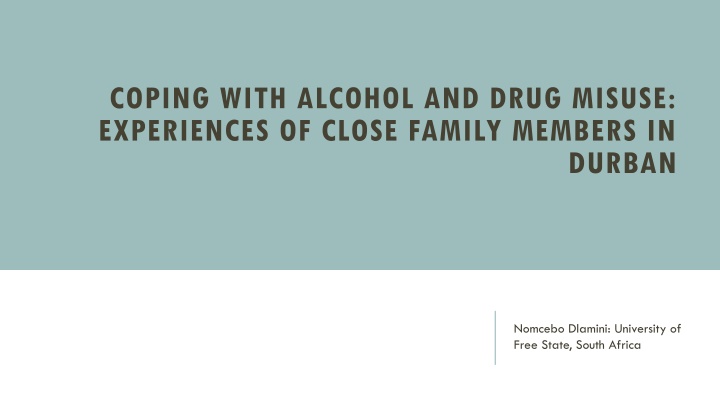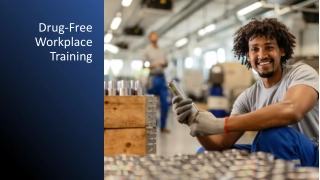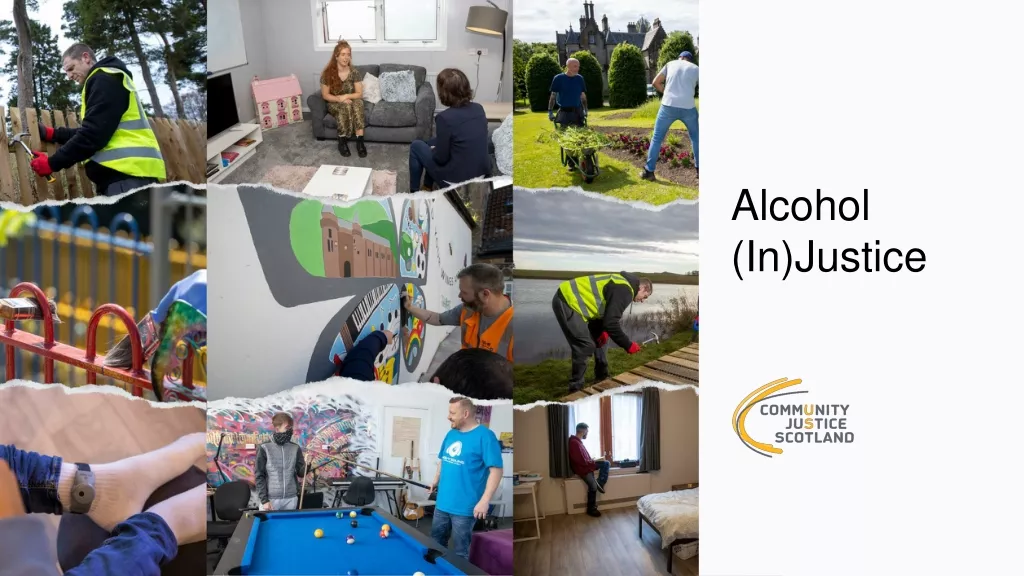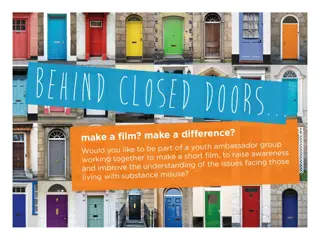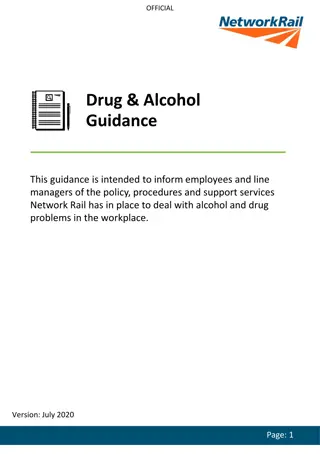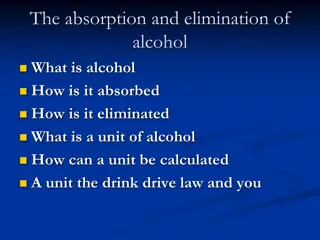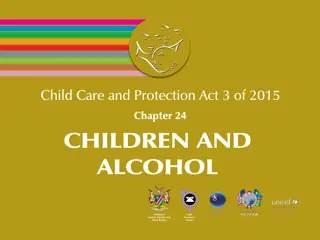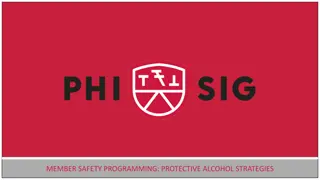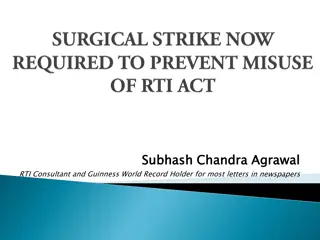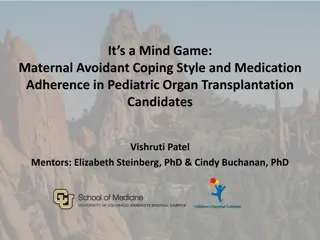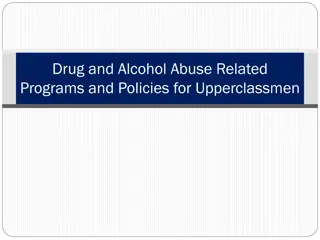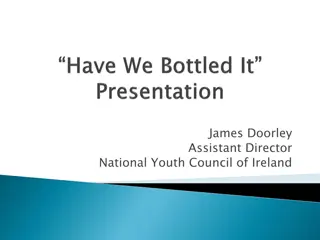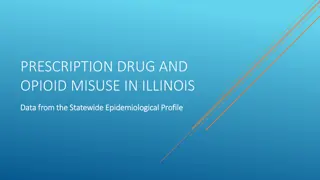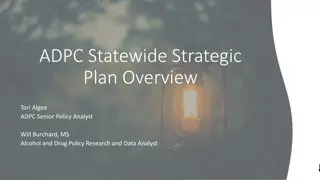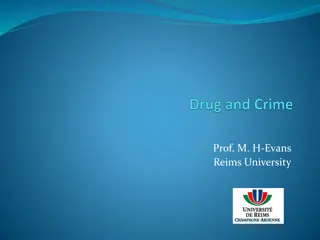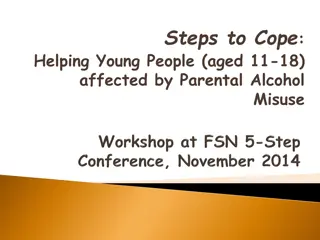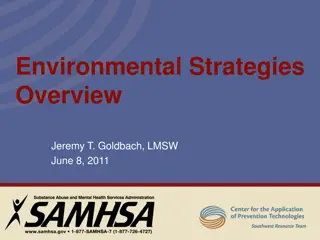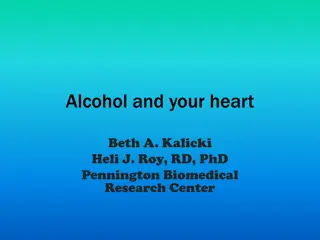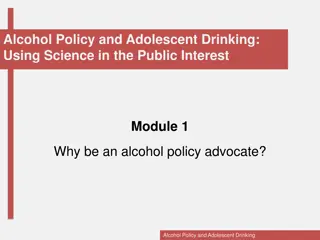Family Experiences in Coping with Alcohol and Drug Misuse
Close family members in Durban share their struggles coping with the impact of alcohol and drug misuse. Challenges include verbal abuse, emotional blackmail, and difficulty seeking social support, affecting their confidence and health.
Download Presentation

Please find below an Image/Link to download the presentation.
The content on the website is provided AS IS for your information and personal use only. It may not be sold, licensed, or shared on other websites without obtaining consent from the author.If you encounter any issues during the download, it is possible that the publisher has removed the file from their server.
You are allowed to download the files provided on this website for personal or commercial use, subject to the condition that they are used lawfully. All files are the property of their respective owners.
The content on the website is provided AS IS for your information and personal use only. It may not be sold, licensed, or shared on other websites without obtaining consent from the author.
E N D
Presentation Transcript
COPING WITH ALCOHOL AND DRUG MISUSE: EXPERIENCES OF CLOSE FAMILY MEMBERS IN DURBAN Nomcebo Dlamini: University of Free State, South Africa
BACKGROUND A concern by former Minster for Social Development (South Africa) in the National Drug Master Plan (2013-2017: 2) stated the following: The use of alcohol and illicit drugs impact negatively on the users, their families and communities. Alcohol and drugs damage the health of users and are linked to rises in non-communicable diseases including HIV and AIDS, cancer, heart disease and psychological disorders. Users are also exposed to violent crime, either as perpetrators or victims and are also at risk of long-term unemployment due to school dropout and foetal alcohol syndrome, being in conflict with law and loss of employment.
METHODOLOGY A qualitative research paradigm was adopted and the study was guided by the eco-systems perspective, as well as the stress- strain-coping-support model Twelve close family members (siblings, parents, and an adult child) who were above the age of 18, and have been living with the person with the user for period of no less than three months were recruited through snowball sampling. Collectively they had 85 family members In- depth individual interviews were conducted, using an interview guide. Data were analyzed thematically
SUMMARY OF FINDINGS Findings revealed that affected family members are faced with severe challenges, and they struggle to cope. They experience verbal abuse, which sometimes escalates to physical, and emotional blackmail and abuse. These experiences impacted negatively on their confidence, self- image and health. They reported having difficulty in reaching out for social support, which meant that most of the challenges they faced, were kept amongst themselves.
I got the best children. I tell you I got the best children I ever met in my life, best I ever wanted. To tell you I tell them to wash dishes, tell them to do this, they did everything. They did everything. But just these drugs took away everything He don t take responsibility for his life he don t take responsibility for his own actions. And the lies is too much. No truth comes of his mouth! He will ask for a R20.00 to go to court, and at that time you feel sorry for him, so you give him, he ll take the same money and go to smoke it! His stole from me, his stole from my daughter. He stole cell phones and things like that. He went to my other daughter s house, and his stole there too. There he took children s clothes and started selling them. Takkies, you know these name brand things. He started selling that. So they were at work, and he was doing that. Stealing peoples washing off the lines, you know!
When my mum was not at home, we worry. Where is she, when is she coming home? Go out and look for her. Her friends never liked us, because we would get there, fetch her and take her home. And they couldn't stand this. But it useless, she comes back home, five minutes later she is gone, back to the same place. From the time we spent looking for her, searching for her, watching the door, for it to open. It s tough, really tough. Please do me a favour and take this child away. Otherwise I will kill him, because when I want to hit him, he also wanna hit me! Who do you think you are? I said your father don t do that, you my husband? We are all tired of this child, not only me, the whole family. I say ya, look at me nicely, I ll cut you open, I ll boil you with hot water, in your sleep!
Because he is selling everything and anything, to support his habit. He is even selling his own clothes! His own clothes! That s how bad he is. And we must watch our rooms. Each of us must sit in our rooms, and watch because he will steal! He will even go into the kitchen cupboard and steal the food. He gets aggressive, demands for money, he breaks the furniture when he wants money, see that door? He smashed it! If you don t want to give him money, he it threatens to kill himself. So we give him money, just to get a few hours of peace. The peace is money. If we haven t got that, then there is no peace. And the peace is fake also, when we have the money.
You worry at night about when he is not at home, where he is, how bad it is. Ive been to the crack houses with him, so I have seen what it s like. I have been in and out with the dealers, to pawn shops where he has sold stuff, and there s time when I ve checked him into hospital, have set next to his bed. I have experienced horrible things. I have been to horrible places that I would never go! And knowing that s where he is, that s what his doing, listening afterwards what he has experienced is heart-breaking Basically what I could say is if they were locked up, like in prison, like my eldest son that is locked up, it would be far better. I did see him like a week back. I mean, being a mother it was like WOW, you know. You were thin, invisible, the drugs had you finished. Now look at you now you so fat you glowing. It was like amazing, you could see him fat. He wasn t that type of person. I mean as I say the both of my other two sons I believe if they get locked up, got to Westville prison, they will change
CONCLUSIONS Family members are not only subjected to personal stress or abuse, but are also worried and concerned about their relatives whom they see as having become the victims of the drink or drugs. Affected family members worried about many things such as relative s physical and mental health, their safely and what the future held for them. They also felt inadequate and to blame for the problem and often felt helpless and hopeless.
CONCLUSIONS Some of the coping mechanisms were inappropriate. In some cases, the AFMs were just as verbally abusive to the users- swearing and cursing back, and others even using corporal punishment. They also reported being extremely watchful of their belongings, wary that the user might steal them, as per usual. They also reported to walk on egg shells , fearing and anticipating the next fight. This hyper-vigilance can be attested to the AFMs being on guard for challenges that have become inscribed in their daily routine, painfully so. While not helpful in resolving the problem, this can be seen as adaptive behaviour, as it facilitated the AFMs coping, through alertness, and being ready for self- defence.
